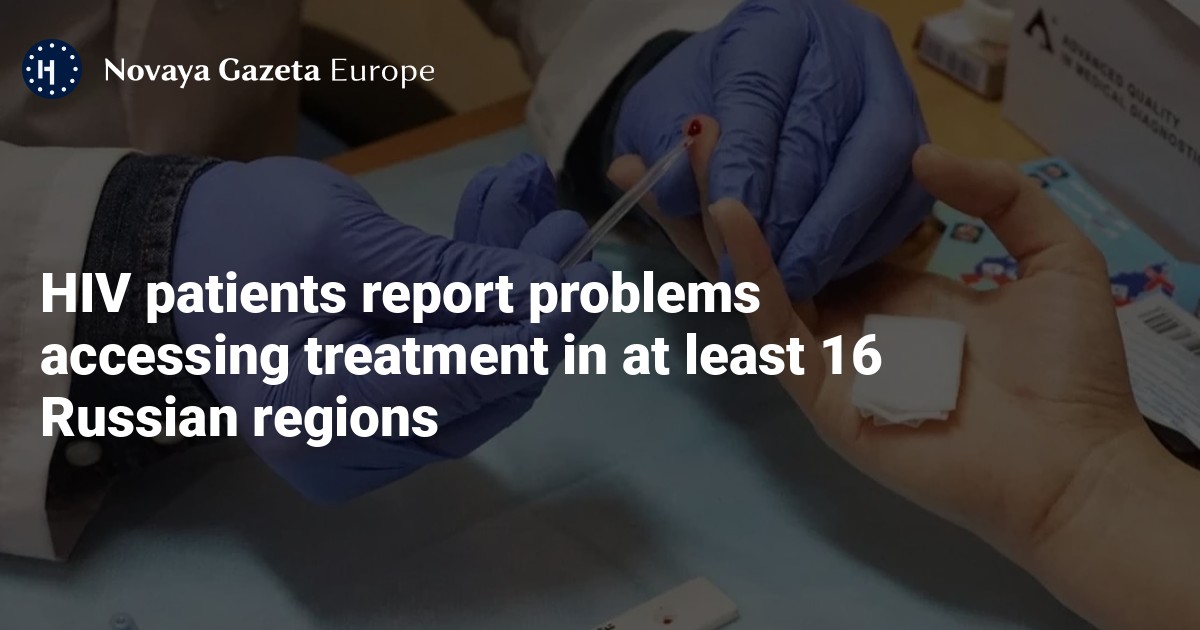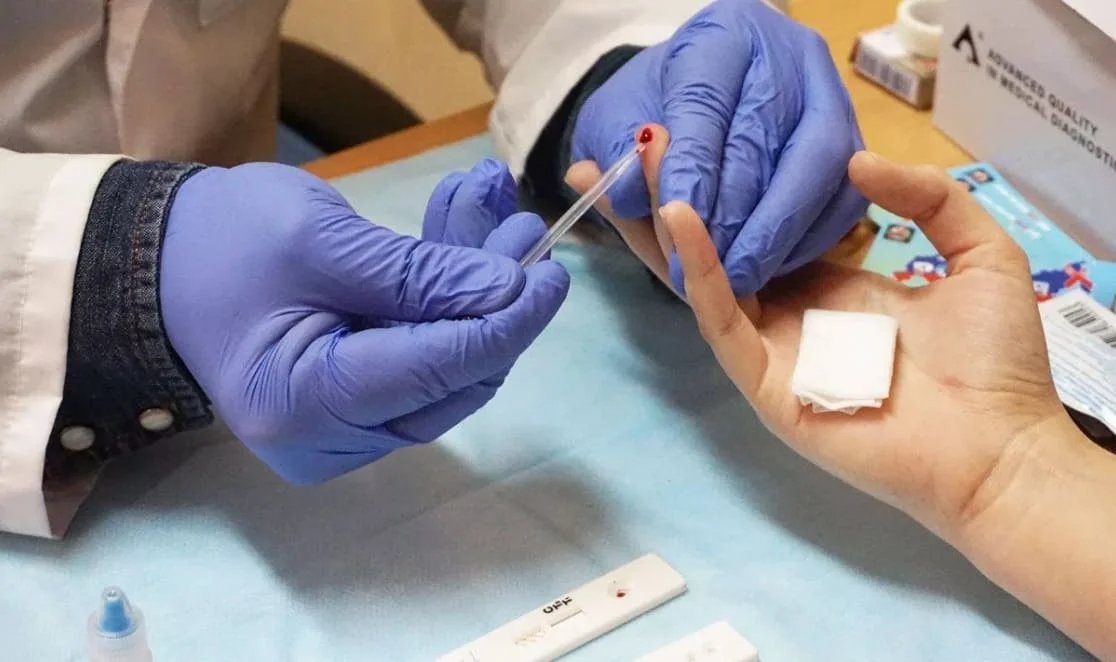




An HIV test being administered. Photo: Revda Info
HIV patients in at least 16 Russian regions have experienced difficulty accessing ongoing healthcare for their condition, state-affiliated business daily Vedomosti reported on Thursday, citing Pereboi, a website that monitors the availability of HIV and hepatitis treatment in Russia.
Since the beginning of the year, Pereboi said it had received 40 complaints from people with HIV who said they had been refused routine tests to establish their viral load and immunity status. In many cases, the reason was a simple lack of testing capacity.
Patients have been denied diagnostic services in the Leningrad, Rostov, Samara, Orenburg, Tyumen, Kaluga and Amur regions, as well as in the republics of Bashkortostan, Dagestan and Udmurtia. There is also a shortage of testing capacity in the Perm region, Vedosmosti reported.
Alexey Kovelenov, the chief physician at a Leningrad region specialist centre for the treatment of AIDS, told Vedomosti that the regional budget for HIV diagnosis had been slashed by 35% in the past three years, while the number of people registered at the centre had increased by almost 13% in the same period.
However, speaking to Vedmosti via the Russian Health Ministry, the authorities in the Perm, Samara, Tyumen, Kaluga and Orenburg regions and the republic of Udmurtia denied that they were experiencing problems with HIV diagnosis.
According to clinical guidelines, patients with HIV should be screened at least once every six months to monitor the progression of their HIV infection and the effectiveness of the medication prescribed to them.
As of late 2023, 1.2 million Russians were confirmed to be living with HIV, according to Rospotrebnadzor, the federal agency for consumer rights protection and human well-being. Russia began experiencing chronic shortages of HIV medication in 2023, since when patients have had difficulty accessing HIV tests as well as life-saving antiretroviral therapy.
